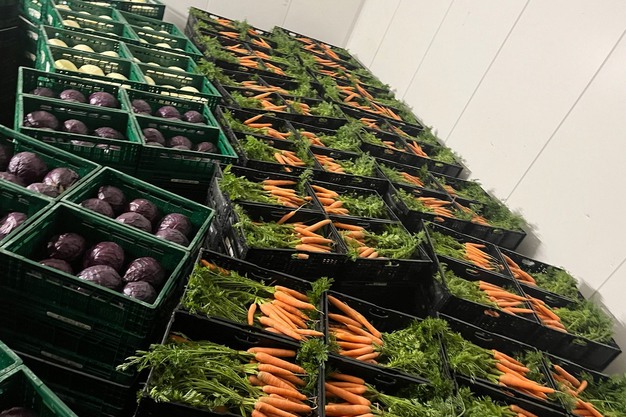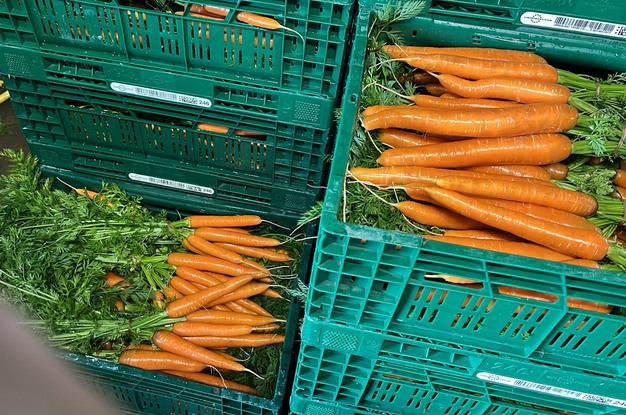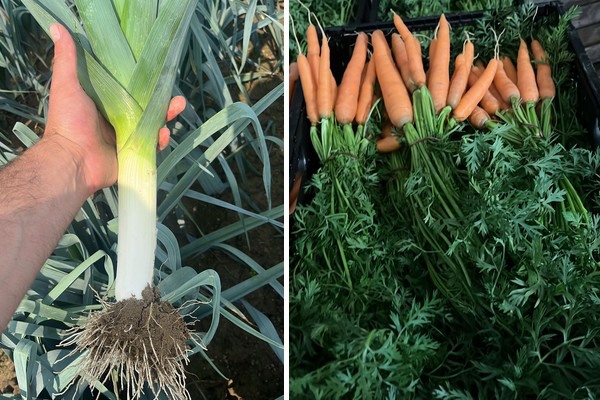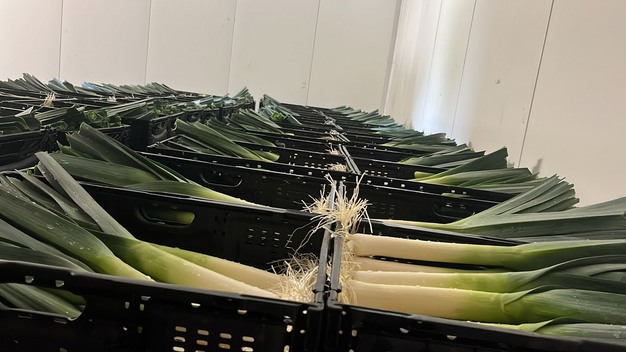The carrot market seems to be slowly recovering after two slower weeks, observes Tom Desmet of Desmet Agro. The company, which grows not only carrots but also leeks, cabbages, celeriac, and other crops like onions and potatoes, is in the final months of the carrot season, which had lost some momentum after a good summer. "I think it had partly to do with the start of the school year, leading people to spend their money on other things," explains the farmer from Meulebeke, Flanders.

"It is increasingly being regarded as a luxury product. In expensive times, carrots in bunches are more likely to be left on the shelf, and people switch to washed carrots," Tom explains, despite coming off a busy summer. "We didn't notice any of that over the summer. During the holiday period, we had an incredibly busy season. We moved good volumes at excellent prices, which kept us going. The quality was also nothing to complain about, despite the tough weather conditions in the spring."
The grower primarily supplies its carrots to domestic retailers or traders who sell to retailers. "That's where the larger volumes go. We do have some restaurant suppliers among our customers, but those are usually smaller quantities. Nowadays, you really need to work with retailers if you want to move large volumes. We've built a nice, loyal customer base in that market."

Still, the momentum slowed a bit at the beginning of September. "The rush suddenly disappeared. We actually see this every year around this time. As mentioned, the school year starts, and attention shifts to other things, whereas before, there was more time for elaborate cooking. However, we already see things picking up again this week. We'll continue until the end of November, as long as the weather allows it. Last year, we had to stop earlier due to heavy rainfall, and the year before that, we went on until the frost hit on December 10. I expect the final months of this season will turn out well too. The weather creates more appetite for bunch carrots. While the volumes aren't as high as during the summer, we're still working steadily through to November. All in all, we can look back on a good season."
Export demand for leeks
It's also a period when everything comes together for the young farmer. "Besides the carrots, we've also started harvesting leeks again since the beginning of September, and in November, the cabbages and celeriac will be added to the mix. The workload is heavy during this time, but it's all about managing it well. As for the leeks, we're quite satisfied with how things are going. The quality is good, and we have no complaints about the prices either. I expect they'll hold steady for a while."

Unlike his carrots, Tom is looking to export for the leeks. "We've noticed a considerable demand from Southern Europe. Additionally, there aren't many top yields, so I have a positive outlook for leeks in the coming period. I expect the prices will fluctuate between 75 and 85 euro cents. They might dip a bit or rise slightly, but they should hold steady, and those are good prices. It's a healthy market, and that's certainly nice," the farmer laughs.
Getting used to extremes
The young farmer took over the business about three years ago. In these years, he has learned the ropes. "Over the past period, I've witnessed a lot of weather extremes. Last year, we experienced an absurd amount of rainfall, which resulted in very high prices—something that isn't necessarily bad for us. However, if you can barely harvest from the land, high prices don't help much. I'd prefer a stable year without weather extremes, and I'd be satisfied. Let's hope this season treats us better. No year is the same, so we'll see."

"However, I believe the unusual weather conditions mean that the time of oversupply is over," Tom continues. "The combination of extremes and challenges for farmers makes things more difficult. This will result in higher prices, which I find quite positive. It demands a lot from a farmer, but I'm happy to do it if we get good prices that allow us to operate profitably. Then everything will turn out well. Despite the challenges, I see a future for this sector."
For more information:
Tom Desmet
Desmet Agro
Knorrebosstraat 10
8760, Meulebeke, Belgium
Tel: +32 470 68 87 74
[email protected]
